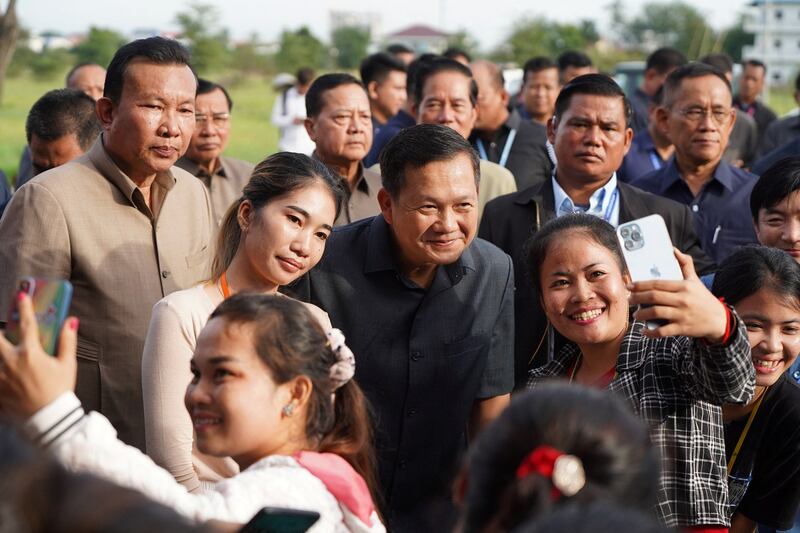Prime Minister Hun Manet has promised to increase the minimum monthly wage for garment workers, but didn’t mention a specific dollar amount in two speeches this week.
The current minimum wage is US$200 – set by then-Prime Minister Hun Sen's government last September. But with rising inflation, independent unions have asked the Ministry of Labor to approve an increase to US$220 for 2024.
“We are paying attention to the workers’ salary,” Hun Manet told workers in Kandal province, just south of Phnom Penh. “We are working to negotiate. We are committed to increasing the minimum wage based on our ability.”
The newly appointed prime minister made similar remarks to about 20,000 garment workers on the outskirts of Phnom Penh on Tuesday.
“We will welcome the government, whether they increase a little or much,” Ath Thun of the Cambodian Labour Confederation told Radio Free Asia. “But if there is a small increase, it is not a gift for the workers. We need an appropriate increase or the workers will face a lower living standard.”
Top issue for opposition party
The minimum wage issue was a main source of support for the opposition Candlelight Party, which has attracted members in recent years with a policy platform centered around improving social welfare benefits.
In May, the party was ruled ineligible for the general elections in a decision criticized as politically motivated.
In June, Hun Sen urged thousands of garment workers to speak out against the Candlelight Party, saying that its efforts could bring international sanctions against the country's garment industry.

More than 50,000 Cambodian garment workers have been laid off over the last few years amid a downturn in the sector that began with the start of the COVID-19 pandemic in 2020.
Additionally, Cambodia has lost some of its preferential trade advantages with the European Union due to human rights concerns, which has meant higher tariffs on exports.
The ruling Cambodian People’s Party swept the tightly controlled July 23 parliamentary vote. Last month, Hun Manet – Hun Sen’s eldest son – was named the country’s new prime minister.
‘Appointments will be removed’
On Friday, Hun Manet said he is reconsidering the number of recent appointments of government officials and advisers.
The size of his cabinet – which includes 10 deputy prime ministers, 21 senior ministers and 30 ministers – has brought criticism about wasteful spending as well as conflict and confusion within the government.
Some advisers and aides have positions equal to minister or secretary of state, even though their titles indicate they are low level government officials. Other officials hold high-level government positions as well as the title of senior adviser, Hun Manet said.
The dual titles and numerous advisers were originally intended as a way to encourage people, but under an upcoming royal decree, ministers and advisers must choose just one title, he said.
“For government officials, police and military who were also appointed as advisers or as aides, those appointments will be removed,” he said. “I will choose a win-win choice so they can continue their work in the government.”
Translated by Yun Samean. Edited by Matt Reed.
